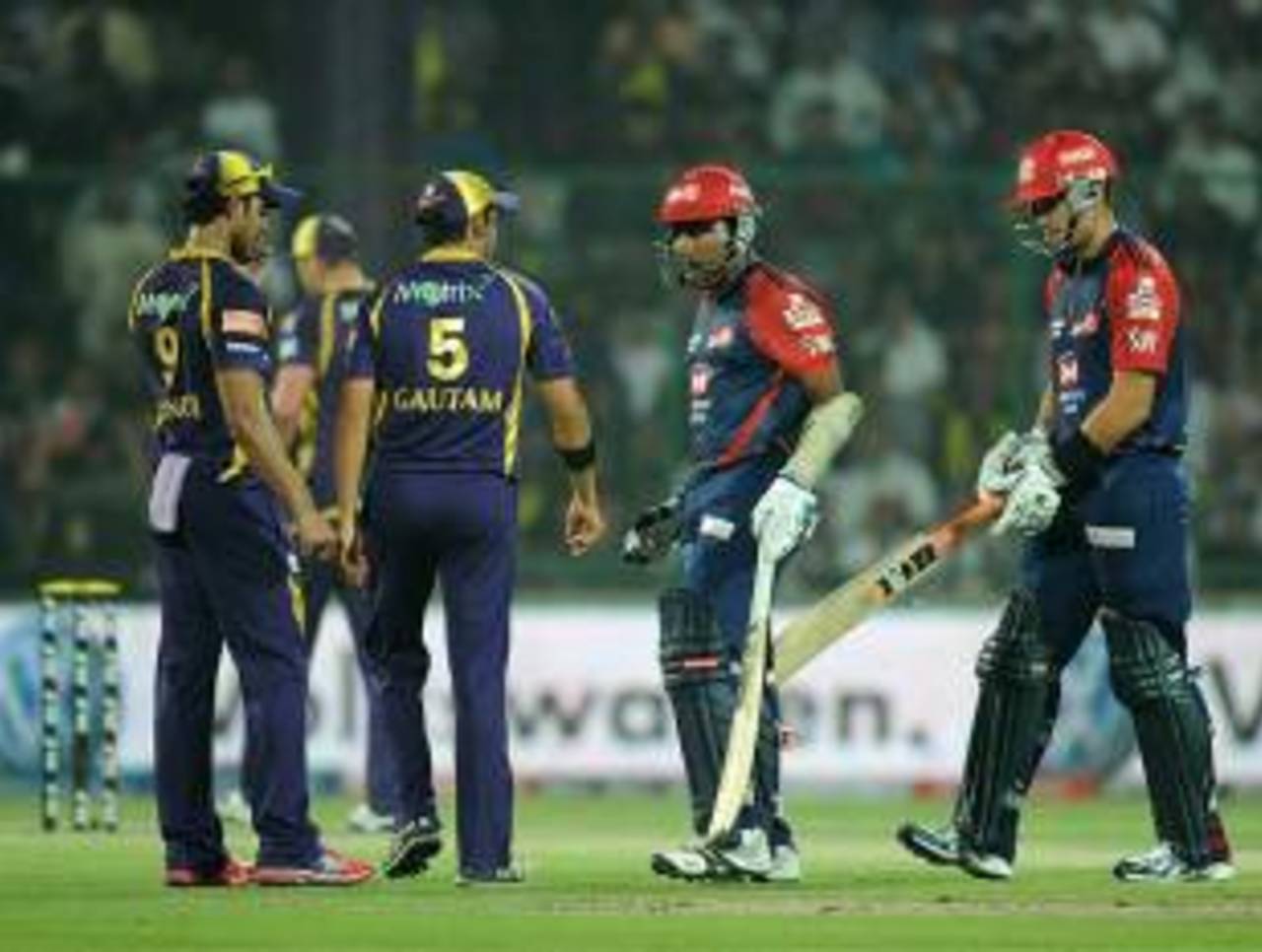BCCI to set up domestic anti-corruption unit
The BCCI has roped in Ravi Sawani, the former head of the ICC's anti-corruption and security unit (ACSU), to head their domestic anti-corruption bureau
Nagraj Gollapudi
May 12, 2012, 5:42 PM

The BCCI's anti-corruption unit will help keep the 'vulnerable' IPL and Indian domestic cricket clean, an official has said • AFP
The BCCI has roped in Ravi Sawani, the former head of the ICC's anti-corruption and security unit (ACSU), to head their new domestic anti-corruption bureau. India will be the fourth country after Pakistan, Australia and England to have an independent ACU unit.
"We want our own ACU unit because at the moment, for tournaments like the IPL, we need to hire people from the ICC and then there is also a lot more domestic cricket played in India," Rajiv Shukla, the BCCI vice-president, told ESPNcricinfo. "So the BCCI felt we should have our own watchdog."
Sawani moved on to become a consultant at the ICC after retiring as ACSU head last year, but his term comes to an end at the end of May this year. The terms and conditions, the exact nature of his job, the kind of structure the BCCI's ACU will have and other details are yet to be worked out. It is understood that Sawani would be given complete authority to set up the unit. It is expected that Sawani will hand pick his team and it will probably comprise of very few people.
The BCCI, an official pointed out, was only following the rule laid down by the ICC executive board, which made it mandatory that all member boards must have a domestic anti-corruption code of their own. "But to enforce the code, you need an agency to do that. That is what the BCCI are doing now," the board official said.
Sawani was not available for comments but a BCCI official said its ACU would keep a close eye on the exhaustive domestic set-up, which was also in the eye-line of the illegal betting industry and made players "vulnerable". "We have a large number of domestic tournaments in India that attract an equal number of bets, which are unknown to the outside world. So players are vulnerable in these tournaments."
In addition to their domestic and IPL duties, Sawani and his team will also educate young players at the various BCCI state academies about the anti-corruption code, and largely extend the work done by the ACSU for the international players.
Asked specifically about the IPL, whether there was any hint of corruption so far in the league, the BCCI official said nothing of that nature had been established. He said that having an exclusive ACU wing would only tighten the existing cracks in the anti-corruption programme, with the IPL in focus because it "needs more eyes than any other team in the world today". "It is not that anything wrong is going on [in the IPL], but because the vulnerability is so much," he said.
In the past the BCCI has turned a deaf ear towards putting a security mechanism in place, typified by its response to security in the first two editions of the IPL. In its inaugural year, 2008, the IPL gave the ACSU a very short notice - just about a week - to come on board. When the IPL was played in South Africa the following year, the Indian board did not have ACSU services for the entire tournament, saying the cost of $1.2m charged by the ICC for the services of their ASCU was too high. In the last three years though the ACSU has been given free reign during the IPL, even though some sections of the board were defensive about paying big money to retain them.
The BCCI official said that by having its own ACU wing in place, they could now breathe easy. The official said that board president N Srinivasan had been very keen to have a domestic ACU. This new anti-corruption venture, the official said was the "initiative of N Srinivasan" because "India is a too big a country to risk anything".
Nagraj Gollapudi is an assistant editor at ESPNcricinfo